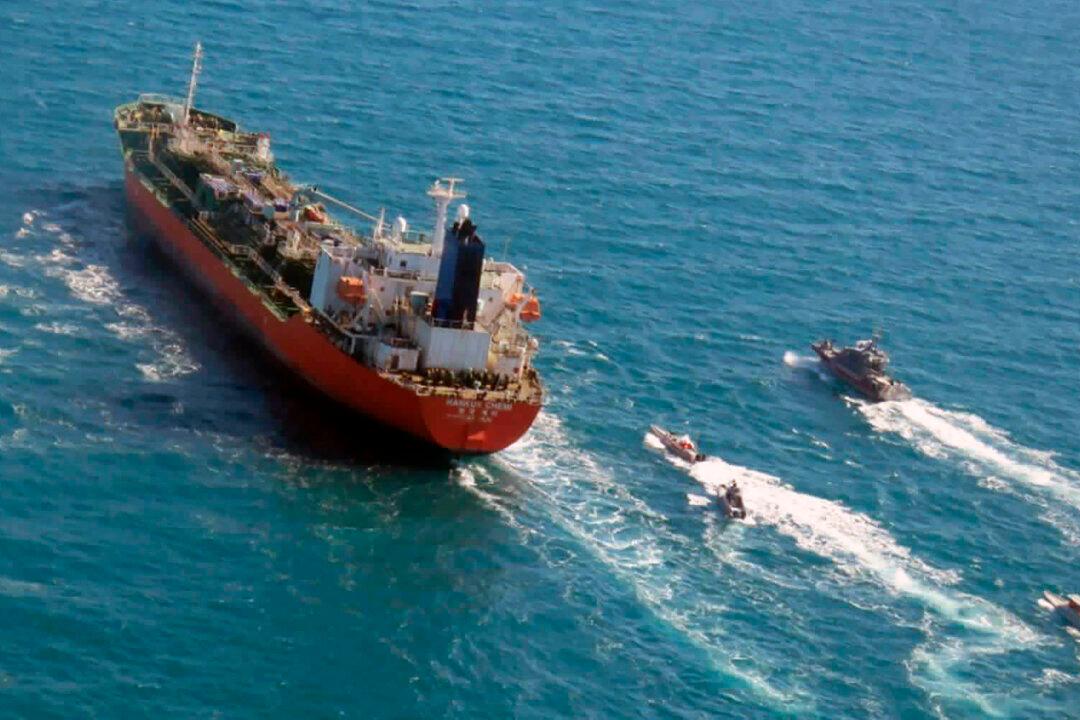TEHRAN, Iran—A South Korean diplomatic delegation arrived in Iran on Jan. 10 to negotiate the release of a vessel and its crew seized by Iranian forces amid an escalating financial dispute between the countries, Iranian state-run media reported.
The South Korean-flagged tanker was seized by Iran’s Revolutionary Guard in the crucial Strait of Hormuz as Iranian officials have been pressing South Korea to release some $7 billion in assets tied up in the country’s banks as a result of U.S. sanctions. It appeared the Islamic Republic seeks to boost its leverage over Seoul ahead of South Korea’s pre-scheduled regional trip, which included a stop in Qatar.





